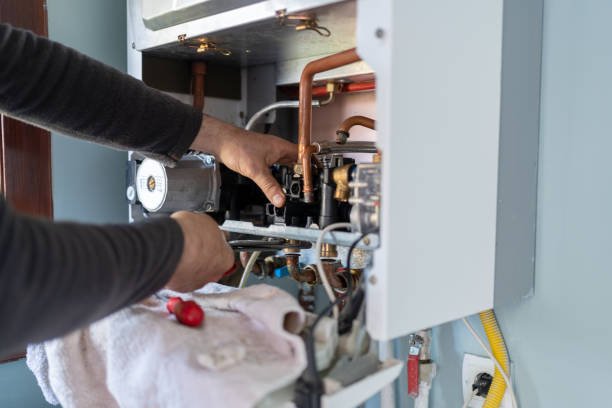Purchasing a home is one of the biggest investments you’ll ever make, so ensuring that it’s in top condition before sealing the deal is crucial. A home inspection provides that extra layer of security by evaluating the property’s structure, systems, and overall condition. But how do you find the best home inspectors to give you the peace of mind you need?
In this guide, we’ll walk through the key factors to consider when choosing the best home inspectors, what to expect during the inspection process, and how to make sure you’re hiring the right professional for the job.
Why a Home Inspection Is Essential
Before diving into how to find the best home inspectors, it’s important to understand why a home inspection is necessary. A thorough inspection not only helps you identify any hidden issues with the property but also gives you negotiating power. If the inspection reveals significant problems, you may ask the seller to fix them or adjust the price accordingly. Ultimately, it provides you with a clearer picture of the home’s condition, saving you from potential headaches (and costly repairs) down the road.
What Makes the Best Home Inspectors?
1. Credentials and Licensing
When searching for the best home inspectors, one of the first things to check is their credentials. A qualified inspector should have the necessary licenses and certifications to perform inspections in your area. In many places, home inspectors are required to be licensed by a state board or authority. Additionally, membership in a professional association, such as the American Society of Home Inspectors (ASHI) or International Association of Certified Home Inspectors (InterNACHI), can demonstrate that the inspector is committed to maintaining high standards.
2. Experience and Expertise
Experience matters when it comes to finding the best home inspectors. A seasoned inspector with years of hands-on experience will have a sharper eye for spotting potential problems. This is particularly important if the property you’re considering is older, has undergone significant renovations, or contains specialized systems like solar panels or pools. Ask potential inspectors how long they’ve been in the industry and whether they have expertise in inspecting homes like the one you’re interested in.
3. Detailed, Transparent Reporting
A good home inspection is only as valuable as the report that follows. The best home inspectors provide clear, detailed, and easy-to-understand reports. Look for an inspector who includes photos of the areas they inspected, along with a written description of any problems they encountered. The report should outline both immediate issues that need attention and potential future concerns. A well-done report will serve as a helpful reference point during the negotiation process and long after the sale.
4. Strong Reputation and Reviews
In today’s digital world, it’s easier than ever to research potential service providers. Look for online reviews and testimonials when searching for the best home inspectors. Websites like Yelp, Google, and industry-specific forums can offer insights into the experiences of other homeowners. Pay attention to consistent feedback, both positive and negative, to gauge how reliable and professional the inspector is. If multiple reviews mention their attention to detail or how they helped catch major issues, it’s likely that inspector is a good choice.
5. Good Communication Skills
A home inspection can be a technical process, with complex systems and issues being evaluated. The best home inspectors should be able to communicate their findings clearly to you. Whether it’s explaining what a cracked foundation means or detailing the implications of outdated plumbing, they should ensure that you fully understand the condition of the home. Strong communication also means that they’re willing to answer any of your questions during or after the inspection, providing you with the knowledge to make an informed decision.
What to Expect During a Home Inspection
Once you’ve selected one of the best home inspectors, it’s important to know what to expect on inspection day. The process usually takes a few hours, depending on the size and condition of the property. It’s recommended that you attend the inspection in person, so you can ask questions and get real-time feedback on any issues the inspector notices.
Here’s a general overview of the areas that will be examined during a typical home inspection:
1. Structural Components
The inspector will check the foundation, walls, and roof for any signs of damage or instability. Cracks, uneven settling, or water damage are common issues that may be flagged.
2. Plumbing System
The home’s plumbing, including faucets, drains, and water heaters, will be inspected for leaks, corrosion, and proper water pressure. A functioning plumbing system is crucial for daily living, so any issues here can be cause for concern.
3. Electrical System
Your home inspector will check for proper wiring, functionality of outlets, and any signs of outdated or faulty electrical components. Electrical issues can be hazardous, so this is a particularly important part of the inspection.
4. HVAC Systems
Heating, ventilation, and air conditioning systems will be inspected for performance and condition. These systems often require costly repairs if they’re not maintained, so an inspection can reveal whether you’ll need to invest in replacements soon.
5. Interior and Exterior
From doors and windows to the home’s siding and attic, the inspector will ensure there are no significant issues with insulation, drafts, or water intrusion. The condition of the interior and exterior directly affects the home’s energy efficiency and structural integrity.
Red Flags to Watch For
While the home inspection process is meant to provide peace of mind, it’s also important to be aware of red flags that could indicate serious problems. Here are some common issues that the best home inspectors will look for:
- Foundation cracks: Significant cracks in the foundation can indicate shifting or settling that may affect the stability of the home.
- Roof damage: Missing shingles or signs of leaks can suggest that the roof may need repairs or replacement soon.
- Mold or water damage: Mold growth or water damage can point to leaks or poor ventilation, both of which need to be addressed to maintain a healthy living environment.
- Outdated electrical systems: If the home still has old knob-and-tube wiring or outdated circuit breakers, upgrading these systems could be necessary to avoid potential hazards.
Tips for Hiring the Best Home Inspectors
1. Ask for Referrals
Word of mouth is a powerful tool. Ask friends, family members, or real estate agents for recommendations. Personal referrals are often a great way to find trusted professionals.
2. Interview Multiple Inspectors
Don’t settle on the first name you come across. Interview a few inspectors to compare their experience, credentials, and pricing. This way, you’ll have a better understanding of who best suits your needs.
3. Check for Insurance
The best home inspectors carry insurance, which can cover any mistakes or oversights they may make during the inspection. While this is rare, it’s reassuring to know that the inspector you choose has coverage in place.
4. Read Sample Reports
Before hiring, ask potential inspectors for a sample report. This will give you an idea of how detailed and thorough their reports are, allowing you to determine whether their style aligns with your expectations.
Conclusion: Peace of Mind Starts with the Right Inspector
Finding the best home inspectors is a critical step in ensuring that your dream home is in the condition you expect. With the right professional by your side, you’ll gain valuable insights into the property’s health and avoid costly surprises down the line.
By taking the time to evaluate their credentials, experience, and communication skills, you’ll be able to hire a qualified inspector who can give you the confidence you need before making a major investment.



